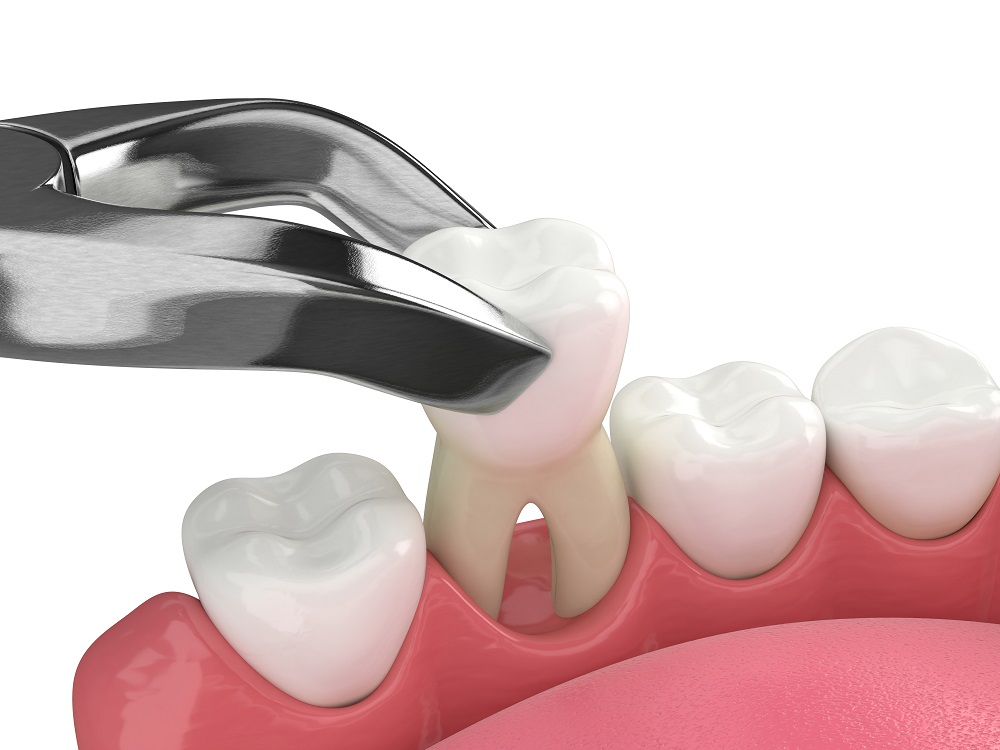
After a tooth extraction, the route to recovery is an important period that can’t be disregarded. The efficacy of the treatment will depend heavily on how well you take care of your mouth during this time.
Ensuring that the extraction site properly heals is just one aspect of your recovery. Other factors like eating well, avoiding tobacco use, and maintaining good daily hygiene are equally important.
Talk with your dentist about tooth extraction in Ipswich if you have any concerns or questions about the process. They are there to help you on this journey from beginning to end.
Understanding Tooth Extraction
Tooth extraction is an essential part of dental care and may be necessary for various reasons, such as advanced decay, crowding, or trauma. The two most common extractions are simple and surgical, and understanding the differences is crucial. Extraction procedures range from simple (for easily accessible teeth) to surgical (for severely impacted teeth). One must rely on the skills of a trained dentist if one desires to have an easy and effective extraction. Making informed choices is essential to a quick and complete recovery, as our expertise ensures a more pleasant procedure and better oral hygiene in the long run.
Immediate Post-Extraction Care
Early post-extraction care, especially in the first 24 hours, is crucial for a smooth recovery. After a tooth extraction, your dentist will wrap the surgical site with cotton. Bite gently to stop the bleeding. Therapeutic activities are encouraged because avoiding hard lifting for 24 hours minimizes the risk of severe bleeding.
Pain management needs to be taken into consideration as well. Take prescribed and over-the-counter pain medications as directed to reduce discomfort and speed healing. Ice packs administered for 20 minutes on and 20 minutes off help reduce swelling.
The diet also affects immediate healing. Avoid spicy foods and stick to soft, cold, and non-spicy foods. For the first few days, avoid hot, hard, or crunchy foods, which may irritate the surgery site and slow healing. Maintaining these principles can improve your initial post-extraction recovery. If you need tooth extractions near you, our team is here to provide professional care and support.
Recovery Periods
-
Short-Term Recovery
The first 1-7 days after extraction may be difficult. Pain is normal; take prescribed or over-the-counter medicines.
Furthermore, swelling peaks within 48 hours and subsequently decreases. When needed, ice packs relieve edema. Blood may ooze at first, but it should stop after two days.
Avoid straws and harsh rinsing to prevent blood clots at the surgery site. After 24 hours, gently rinse with warm saltwater. Sleep, no smoking, and no alcohol can help you recover.
-
Long-Term Recovery
Long-term recovery, lasting 1-2 weeks and beyond, focuses on complete healing and routine resumption. Start your dental hygiene routine cautiously, being careful around the extraction site.
As you recover, eat solid foods, but avoid hard and crunchy ones to minimize discomfort. Although most people see a significant reduction in discomfort, consult your dentist if it persists or worsens.
Regular dental checkups track recovery and fix concerns. These guidelines will enable a smooth short- and long-term recovery. A reliable dentist in Ipswich is essential for dental health, and our professional team can help.
Factors Affecting Recovery Time
Tooth extraction recovery time varies, influenced by several key factors:
- Type of Extraction: Simple extractions of visible teeth heal faster. Surgical extractions, needed for impacted or multi-rooted teeth, take longer and may cause more discomfort.
- Individual Healing: Age, genetics, and overall health impact healing speed. Younger individuals often heal more quickly, and genetic factors can affect tissue regeneration.
- Overall Health: Good health, a strong immune system, and proper nutrition promote faster recovery. Chronic illnesses and immune system issues can slow healing.
- Compliance: Adhering to post-extraction care instructions provided by a dentist near you is crucial. Customized to your needs, it helps accelerate healing. Avoid slow-healing habits like smoking and maintain proper hygiene.
Understanding these factors helps manage expectations and supports a quicker and smoother recovery after a tooth extraction.
Tips for a Smooth Recovery
Several factors must be considered to recover quickly and painlessly following a tooth extraction. Drinking adequate water can help you recuperate. Avoid tobacco products, which can make recovery slower and increase risk. You can brush and floss normally, but use a soft toothbrush to avoid aggravating the incision. Diets rich in vitamins and minerals assist recovery.
Accelerate Your Tooth Extraction Recovery: Ipswich Bay Dental
Our local dental clinic is here to aid you in your dental journey – from preparation to the treatment itself to the recovery period, we’ll make certain that you’re looked after every step of the way.
Please call us today if you need any assistance. You can reach us via email, phone call, or by coming into our office whenever your schedule permits. We hope to see you soon!

